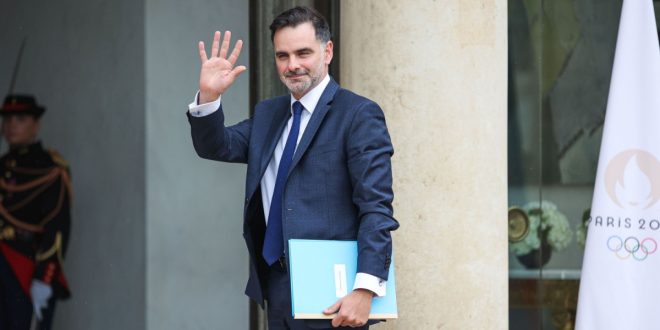The working group established to evaluate whether France should regulate online casinos held its first meeting on Tuesday, 2 December. This initial meeting focused on how regulation might help address addiction and problem gambling issues.
The project is the result of the stakeholder meeting that was organised by Budget Minister Laurent Saint-Martin at the start of the month and the government’s subsequent decision to undertake a six-month consultation led by three working groups.
The groups will focus on public health, consumer protection and the economic impact regulated online casinos might have on France’s physical casinos. They will be led by the ministry – Budget, Interior, Health, Culture, or Sport – most relevant to the particular issue.
Political implications will play key roles in determining the direction of the talks, with ministries such as Health and Culture understood to be opposed to – or at best lukewarm about – legalisation, while Budget officials are understood to be positive about the expected tax revenue and the potential to bring France’s debt levels.
Tax rates and expected fiscal revenues will be key considerations, but there is also the prospect of the Interior Ministry, which supervises French land-based casinos, potentially clashing with the Budget Ministry over different visions of how regulation should take shape.
In addition, and more serious for France, there is also a real risk that PM Michel Barnier’s government could be brought down by a vote of confidence as a result of MPs rejecting the 2025 budget.
One contact tells G&C that the risk of such an event is increasing: “The credibility of certain political groups is at stake, and they may have no choice but to censure the government in view of what is contained in the Finance Bill.”
In addition, Marine Le Pen, leader of the far right party Rassemblement National, effectively has the deciding vote on whether to vote the budget through, but much will also depend on how she “decides to position herself in light of the outcome of her trial”, which is due in March next year.
What would happen to the legalisation process if the government falls? “It will have a major impact on the proposed regulation of online casinos,” says G&C’s source. “There is a risk that the work of the committees will be nipped in the bud. There is then no certainty that the next government will see this issue as a priority and that it will tackle it in the same way as the current government.”
Stakeholders would likely mobilise to put the issue back on the table, but there would be no guarantee of fast progress and such an outcome would be a major setback for the industry.
“But,” notes the contact, “given the state of the budget, a new government might be tempted to take up the project again in view of the tax revenues it could generate.”
Three models, were previously reported, are on the table: a competitive model as outlined in the online casino amendment introduced by the government at the end of October, a hybrid model that would see the country’s licensed online groups operate the digital offerings of land-based casinos, while a most unlikely but not completely impossible scenario would see Française des Jeux granted an iCasino monopoly.
Don’t forget to subscribe to our Telegram channel!










